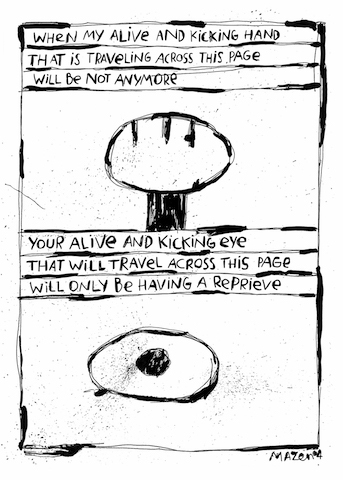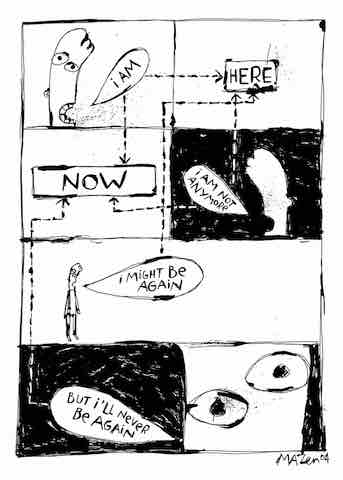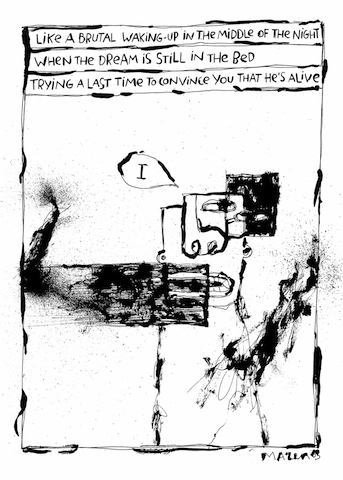By LI YONGYI
Translated by STEPHEN HAVEN and LI YONGYI
Spiritual territory divided by Israel and Rome,
Capitol, the eagle and the military
Turned English into Latin, your ark of covenant
Lurking in “Old Europe” and exceptionalism.
By LI YONGYI
Translated by STEPHEN HAVEN and LI YONGYI
Spiritual territory divided by Israel and Rome,
Capitol, the eagle and the military
Turned English into Latin, your ark of covenant
Lurking in “Old Europe” and exceptionalism.
Lady Gaga says she truly cares about all her Little Monsters
and if you don’t believe her that is just because you don’t know her.
They send her fan videos, tell her about the bullying
and the beatings
and she takes it all in. One night a bulimic approached me
at KGB Bar.
By TANG DANHONG
Translated by STEPHEN HAVEN and LI YONGYI
You might have been my brother, especially at dawn
Milky vapors rise into the sky,
That white adolescence wafting into my lungs.
By MO FEI
Translated by STEPHEN HAVEN and LI YONGYI
By YANG JIAN
Translated by STEPHEN HAVEN and LI YONGYI
They said:
“Tear off the erhu strings,
Smash its body.”
We ended up without music.
By DAVID LEHMAN
The drill instructor was not in a good mood. He had had a mi-
graine all weekend. The weather sucked. He hated sports and there
were going to be no pleasantries about the Yanks, the Mets, the
Knicks, the Nets, or any other team. He knew as I knew that every-
thing depended on one thing: the book. You went by the book. Fol-
low orders and stay out of trouble.
By MAZEN KERBAJ



Mazen Kerbaj is a Lebanese comics artist, visual artist, and musician born in Beirut in 1975. Kerbaj has authored more than fifteen books. His work has been published in anthologies, newspapers, and magazines, and translated into more than ten languages. His paintings, drawings, videos, performances, and installations have been shown around the globe.

The year is 1972. Tony Durán, a Puerto Rican-born adventurer and professional gambler from New Jersey, is found dead in his hotel room soon after arriving in a small town in Buenos Aires Province with a leather bag full of dollars. Dark-skinned, he spoke Spanish with a Caribbean accent. Rumors of his ménage à trois with Ada and Sofía Belladona, twin daughters of a prominent local landowner, have scandalized the town. Inspector Croce investigates.
So begins Argentine writer Ricardo Piglia’s fourth novel, Target in the Night, as detective fiction. Who killed Tony Durán and why? A gambling plot, the love triangle? Could one of the Belladona sisters have soured on the tripartite arrangement? My next guess: Racism? Durán is “a mulatto who shows up in a place where the last black people had disappeared—or dispersed until they blended completely into the landscape—fifty years earlier.”
New Poems by our Contributors